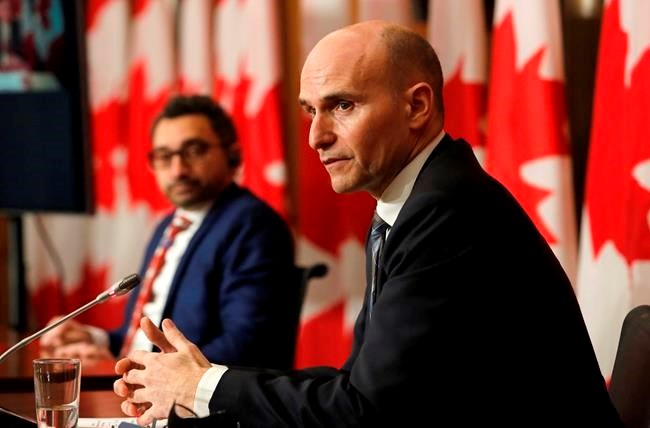The travel and hospitality sector was left reeling Wednesday after the federal government warned against non-essential trips abroad due to alarming numbers of COVID-19 cases.
WestJet CEO Harry Taylor railed against the advisory, predicting it will create "unnecessary disruption and chaos" ahead of the holiday travel season.
"Fully vaccinated Canadians should not be singled out for choosing to take part in a safe activity,” Taylor said in a statement.
"Travel bans, restrictions and blanket advisories are devastating to the continued economic recovery of the country and place tens of thousands of recently recalled Canadian travel and tourism jobs at risk."
He also claimed the government's warning is "not based on science and data," adding that Canada's travel measures fall out of step with border policies in the European Union, United Kingdom and United States. He is calling on the government to publicly share the COVID-19 data that informed Wednesday's advisory.
His statement came after a news conference in Ottawa where Health Minister Jean-Yves Duclos said the Omicron variant is now spreading in Canadian communities and across the globe, prompting a new advisory less than two months after the old one was lifted.
Duclos said the situation became more complicated at a pace he "couldn't have imagined" a few weeks ago.
"To those who were planning to travel I say very clearly, now is not the time to travel," he said Wednesday.
"I know this is difficult for airlines, for travel agencies, for families, for people who haven't been able to see each other for a long time," Duclos added in French.
He would not offer advice on domestic travel, adding that any travel restrictions within Canada will come from provincial governments, but Prime Minister Justin Trudeau urged Canadians to be cautious when making their travel plans.
"I understand this sucks," Trudeau said Wednesday. "The reality is Omicron is here in Canada, and we have to cut down community spread."
Airline customers have been cancelling bookings by the thousands, said Air Transport Association of Canada CEO John McKenna.
"They’re cancelling because they don’t know what to expect when they come back," he said in an interview.
"I think they’re more afraid of the bureaucracy than of Omicron."
A decline in international trips will likely prompt a slowdown in regional ones, since the two feed into one another, and anxiety over the highly transmissible strain will further discourage domestic travel, he said.
Federal ministers warned Wednesday that more measures at the border could still be on the way, and did not rule out the possibility of reinstating the requirement for travellers who leave the country for less than 72 hours to complete a molecular COVID-19 test in order to re-enter the country.
Currently, Canada has banned all foreign nationals who have been in 10 specific African countries in the last 14 days from entering the country to offset the threat of importing Omicron cases. That policy should be re-examined, chief public health officer Dr. Theresa Tam said Wednesday. Duclos hinted the government may "clarify" that policy soon.
"We give our best advice. At the end of the day, decision-makers make their decisions," added Tam deputy Dr. Howard Njoo.
The positivity rate among fully vaccinated travellers arriving by air was 0.17 per cent the week of Nov. 14 to 20, and 0.00 per cent the following week, according to the Public Health Agency of Canada. Land arrivals had comparable figures.
"That was the promise behind the vaccination mandate and the promise behind testing," WestJet vice-president of government relations Andy Gibbons said in a phone interview.
"If we shift backwards to 14-day quarantines or blanket policies, then we reverse that progress."
He noted that virtually no activity outside of international travel demands proof of a negative molecular test from fully vaccinated individuals.
Confusion around travel measures and shifting rules and guidance from the federal and provincial governments also remains a problem, Gibbons added.
The Association of Canadian Travel Agencies said the new advisory will have a "devastating impact" on its 14,000 agents, who depend on holiday travel to bolster business.
The trade group is urging Ottawa to communicate advisories and border measures clearly and quickly on a single website and work more closely with industry.
About 87 per cent of Canadians aged 12 and over are fully inoculated, with airport testing also ramping up.
Travel insurance plans continue to cover COVID-19 costs at no extra charge and with no virtually cap on expenditures if a traveller winds up in hospital, said Marty Firestone president of Travel Secure, a Toronto-based company that specializes in travel insurance.
"The insurers are themselves telling you they see little risk ... if you're fully vaccinated," he said.
This report by The Canadian Press was first published Dec. 15, 2021.
Christopher Reynolds, The Canadian Press




